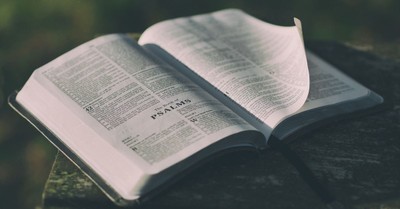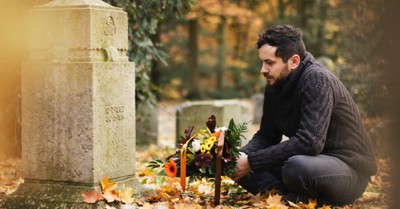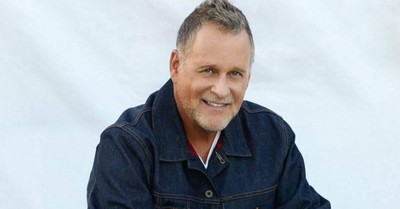When Will the Pandemic End? Hoping in Hope or Hoping in God
Starbucks is offering free therapy to all its employees, and for understandable reasons.
The number of identified coronavirus cases in the US surged past five thousand yesterday. The government’s economic stimulus is set to quickly balloon into trillion-dollar territory as the economy stalls from the coronavirus crisis. And the FAA has begun sending some employees home as coronavirus spreads among federal workers at airports.
Young people are especially struggling with the social distancing that countries across the world are mandating. Since most of them will have mild symptoms if they become infected, many are finding it hard to remain isolated from their friends.
But that’s exactly what everyone needs to do. A new study suggests that for every known case of coronavirus, another five to ten cases are undetected. These often-milder cases are responsible for nearly 80 percent of new cases.
Having contact with other people puts people at risk of the virus. Even if a young person only has contact with another young person, the second person might then have contact with a parent, grandparent, or someone with an underlying health condition. And since an estimated 60 percent of Americans have at least one chronic health condition, there is no sure way for us to identify those we know who are in greater danger from the disease.
This means that everyone must do what the authorities are calling us to do and engage in social distancing now.
My foot surgery and returning to "normal"
It would be so much easier to endure this crisis if we knew when it will end.
For instance, I had foot surgery a few years ago. The pain of recovery was eased by the surgeon’s promise that it would improve over time and return to “normal” in a few months. If I had to endure that pain with no end in sight, it would have been much more debilitating.
This is where we find ourselves today with COVID-19. One of the questions everyone is asking is, When will this end?
Dr. Anthony Fauci, head of the National Institute of Allergy and Infectious Diseases, was asked Sunday, “When will life get back to normal?” He responded, “It’s going to be a matter of several weeks to a few months, for sure.” Other specialists say that even after the pandemic peaks and then recedes in the US, we may need drastic actions to keep the virus at bay.
What do we do now? Three biblical answers
Yesterday, we considered Martin Luther’s most famous hymn, “A Mighty Fortress Is Our God.” Luther based his hymn on Psalm 46. On the first Sunday after 9/11, I preached from this text in answering the question, What do we do now? Let’s consider three answers.
One: Run to God.
The psalmist announces, “God is our refuge and strength, a very present help in trouble” (v. 1). I told our church that a “refuge” is a place where we go to escape, to be sheltered and safe. But we must choose to go there. If we think we can face the storm unaided, a refuge cannot help us.
So go to God every time fear finds you. The Hebrew word for refuge is literally translated, “a place to which we flee.” Don’t walk—run. Flee to your Father’s help, power, love, and grace. Seek and trust the strength he offers.
Two: Refuse to yield to fear.
The psalmist continues: “Therefore we will not fear though the earth gives way, though the mountains be moved into the heart of the sea” (v. 2). I told our people that we can only refuse our fears after we have gone to God (cf. 2 Timothy 1:7).
We cannot prevent the emotion of fear, but we can refuse to yield to it. We can name it and then take it specifically and immediately to God in prayer. We can say, “Lord, I am afraid for my job” or “my health” or “my family.” And we can ask him for the courage to trust our fears to him.
Three: Rest in faith.
The psalm quotes our Lord: “Be still, and know that I am God. I will be exalted among the nations, I will be exalted in the earth!” (v. 10). I told our people that one day these days will be gone. One day there will be a new heaven and a new earth with no more death or mourning or crying or pain (Revelation 21:1-4).
Until that day, we can know that “the Lord of hosts is with us; the God of Jacob is our fortress” (Psalm 46:11). No matter where we go, we go with God. That’s why our Father says we can “be still” in the knowledge that “I am God” (v. 10). Your Father is God. You can run to him, bring your fears to him, and rest in him today.
"An unlimited faith in the giver of all good things"
We can hope in hope—hope that the pandemic will end soon; hope that scientists will find a vaccine or treatment; hope that things won’t be as bad as they could be. Or we can hope in God.
In With Open Hands, Henri Nouwen noted: “A person with hope does not get tangled up with concerns for how his wishes will be fulfilled. So, too, his prayer is not directed toward the gift, but toward the one who gives it. His prayer might still contain just as many desires, but ultimately it is not a question of having a wish come true but of expressing an unlimited faith in the giver of all good things ...
“For the prayer of hope it is essential that there are no guarantees asked, no conditions posed, and no proofs demanded, only that you expect everything from the other without binding him. Hope is based on the premise that the other gives only what is good. Hope includes an openness by which you wait for the other to make his loving promise come true, even though you never know when, where or how this might happen.”
Is your hope in hope, or is your hope in God today?
My son Ryan and I began writing it in December of last year. Little did we know how relevant it would be just a few months later as the coronavirus pandemic has reshaped so much of society.
This book aims to equip you with practical, biblical ways to help those in your life who are hurting or doubting. I pray that its words give you hope and provide you with helpful tools to help others. Please request your copy today.
Publication date: March 18, 2020
Photo courtesy: Christine Sandu/Unsplash
Jim Denison, PhD, is a cultural theologian and the founder and CEO of Denison Ministries. Denison Ministries includes DenisonForum.org, First15.org, ChristianParenting.org, and FoundationsWithJanet.org. Jim speaks biblically into significant cultural issues at Denison Forum. He is the chief author of The Daily Article and has written more than 30 books, including The Coming Tsunami, the Biblical Insight to Tough Questions series, and The Fifth Great Awakening.
The views expressed in this commentary do not necessarily reflect those of CrosswalkHeadlines.
For more from the Denison Forum, please visit www.denisonforum.org.
The Daily Article Podcast is Here!




















